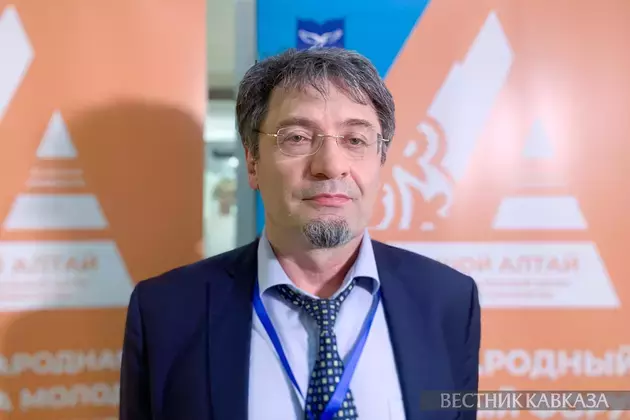The international expert forum "The Slavic-Turkic World in the Greater Altai Space: History and Modernity" is taking place in Barnaul. Director of the Institute of Oriental Studies of the Russian Academy of Sciences, Doctor of Historical Sciences, Professor Alikber Alikberov told Vestnik Kavkaza about the unity of the Slavic and Turkic peoples.
- Alikber Kalabekovich, today at the forum we've listened to your speech about the historical and cultural unity of the Slavic and Turkic peoples as the basis for a common vision of the future. Could you briefly tell the readers what you were talking about?
- We are talking about the main peoples inhabiting a large area of Eurasia. Our life world coincides with this space. There the main groups of peoples are Slavic and Turkic. This does not mean that there are no other peoples here, we also take them into account. But now we are talking about large nations, their unity and diversity. Through the unity and diversity of the Turkic peoples, the unity and diversity of the Slavic peoples, we reach the historical and cultural unity between them.
In addition to this, we have civil unity within Russia. Ethnic origin comes in second place, but citizenship and civic identity still take priority. If we are talking about a wider space, including Central Eurasia, which includes Central Asia and the Caucasus, mainly the post-Soviet East, then there is historical and cultural unity there. We have had many common political projects, but we have existed together for about a thousand years. We lived as we are neighbours, we interacted as neighbours, and it will continue. The most important thing is neighborly, friendly relations. On the basis of a common history, strategies for the future are developed.
- How relevant is this history now?
- We update history, firstly, in order to use historical documents to build our today's world, and secondly, in this way we fight against historical distortions. Those who falsify history under the slogan of restoring historical justice do not know the historical truth. Of course, there have been difficult episodes. Relatives also quarrel. But in general we need to look at the relationship between positive and negative. The positive sides always win.
Common survival strategies that have been developed over centuries have preserved us. We exist today because we helped each other. The Slavs and the Turks complement each other both in type of economy and culture. We didn't occupy the same niches. We didn't have to compete with each other.
I'm not talking about the Russian-Turkish wars now, since these were wars of empires. This is a separate story. We are talking about the territory of northern and central Eurasia. If empires fought, then this is precisely the war of empires. If there were any medieval states, then it would be very difficult to consider them ethnic too. Is the Golden Horde ethnic? Is it the state of the Mongols? That’s not quite true. Mongol laws applied only to nomads in the Golden Horde. They never applied to the settled Russian cities. There, only a prince administered justice. We must understand the complexity and multi-structure of the Mongolian state. It is wrong to imagine that the Mongol state crushed everyone and everything. In fact, trade and cities developed. The civil strife ended. We do not justify the Mongols, but evaluate history as historians, based on the experience and the legacy that the Golden Horde left. To say that everything Western is exceptionally good, and everything Eastern is exclusively barbaric, is unfair. The tradition of peaceful existence is more of an Eastern tradition. In the East there is a win-win strategy: both parties should benefit. This is a key point that still defines our relationship.

- How would you characterize Russia's relations with Azerbaijan?
- During the Karabakh conflict, we did not oppose either Azerbaijan or Armenia, but tried to bring their positions closer together. I personally participated in several rounds of negotiations. Russia has always advocated peace, and we have had proposals for a peaceful settlement. Back then they were still talking about a deferred status. If Armenia had agreed to this deferred status, agreed to the proposal to return refugees and other conditions, then there would not have been this [second Karabakh] war. Escalation could have been avoided. But history does not know the subjunctive mood.
Azerbaijan is a very important partner for Russia. It is a key player in relations not only with Türkiye, but also with Iran. All these states, despite the contradictions that sometimes arise between them, are our partners. Both Türkiye and Iran are civilization states. In this sense, the Slavic-Turkic world is not only an internal Russian paradigm, it is a broad Eurasian paradigm, where sooner or later we would like to see Türkiye. These are new formats.






